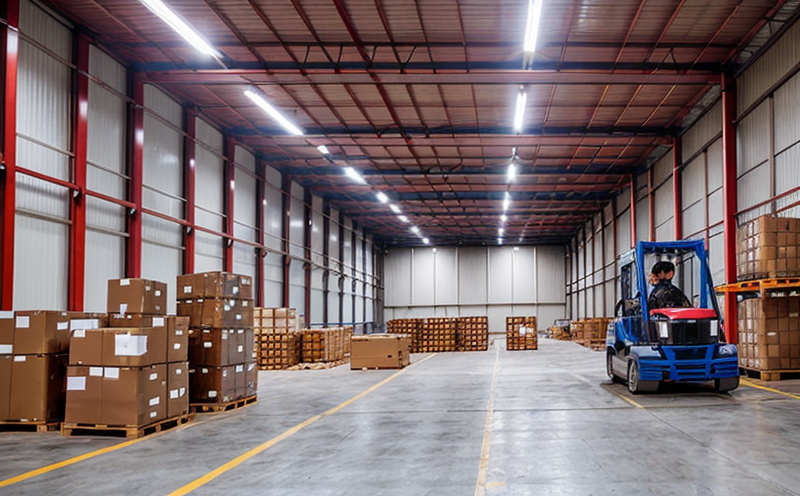ISO 4202 Biodegradability Testing of Packaging Materials
The process of biodegradation is a fundamental aspect of sustainable packaging design, especially in the industrial manufacturing and processing sector. ISO 4202 provides a standardized method to determine the extent of biodegradation of plastic materials under composting conditions. This service ensures that manufacturers can comply with environmental regulations while also ensuring their products perform effectively within the supply chain.
ISO 4202 is particularly important for packaging materials, as it helps in identifying those that will decompose rapidly without leaving harmful residues. In the context of industrial manufacturing and processing testing, this test ensures that any material used does not contribute to long-term environmental pollution, thereby supporting a more sustainable supply chain.
For quality managers and compliance officers, understanding the biodegradability of packaging materials is crucial for meeting regulatory requirements. R&D engineers can leverage ISO 4202 to innovate new products that meet both performance standards and sustainability goals. Procurement teams benefit from this service by ensuring they source sustainable materials that align with corporate social responsibility policies.
The testing process involves subjecting the packaging material sample to a controlled composting environment for a specified duration. The sample is then analyzed to determine if it has broken down into simpler compounds, primarily carbon dioxide and water, through biological action. This process not only assesses environmental impact but also ensures that the material remains functional throughout its intended lifecycle.
Specimen preparation for ISO 4202 testing involves selecting representative samples of the packaging material to be tested. The samples are conditioned under specific temperature and humidity conditions before undergoing biodegradation testing in a controlled composting environment. It is crucial that the specimens maintain their integrity during this process, as any degradation prior to testing can lead to inaccurate results.
The instrumentation used for ISO 4202 includes specialized incubators designed to simulate composting conditions and analytical equipment such as gas chromatography-mass spectrometry (GC-MS) or infrared spectroscopy (IR) to analyze the breakdown products. The test parameters include temperature, humidity, and time, all of which are carefully controlled to ensure accurate measurement.
The acceptance criteria for ISO 4202 testing involve a minimum percentage of biodegradation after the specified period in the composting environment. This percentage is used as an indicator of the material's environmental friendliness. Compliance with these criteria ensures that the packaging material meets both performance and sustainability standards.
Understanding the nuances of ISO 4202 testing can help industrial manufacturers make more informed decisions about their product design and sourcing strategies. By ensuring compliance, they contribute to a circular economy where waste is minimized and resources are used efficiently. This service not only aids in regulatory compliance but also supports long-term sustainability goals.
Through rigorous testing, ISO 4202 ensures that packaging materials decompose safely and effectively, reducing the environmental footprint of industrial processes. It offers a robust framework for evaluating the biodegradability of plastic materials, providing manufacturers with valuable insights into their product's environmental impact.
In conclusion, ISO 4202 biodegradability testing is an essential service in the context of sustainable packaging design and compliance with international standards. By leveraging this test, industrial manufacturing companies can ensure that their products meet both performance and sustainability goals, contributing to a more environmentally friendly supply chain.
Industry Applications
- Sustainable Packaging Development: This service aids in the development of packaging materials that are biodegradable, ensuring they decompose safely and effectively without leaving harmful residues.
- Regulatory Compliance: ISO 4202 testing helps manufacturers comply with environmental regulations regarding plastic waste management.
- Sustainability Reporting: The results of this test can be used in sustainability reports to demonstrate a commitment to reducing the environmental impact of packaging materials.
- Supply Chain Optimization: By ensuring that packaging materials are biodegradable, companies can optimize their supply chain for sustainability and reduce operational costs associated with waste management.
- Innovation in Packaging Design: This service encourages the development of new materials and designs that meet both performance standards and sustainability goals.
- Customer Satisfaction: Providing eco-friendly packaging options can enhance customer satisfaction, especially among environmentally conscious consumers.
Eurolab Advantages
Eurolab offers comprehensive ISO 4202 biodegradability testing services that are tailored to the specific needs of industrial manufacturing and processing companies. Our team of experts ensures that each test is conducted according to international standards, providing reliable and accurate results.
Our state-of-the-art facilities include specialized incubators capable of simulating composting conditions and advanced analytical equipment for specimen analysis. This allows us to provide precise measurements and insights into the biodegradability of packaging materials.
We offer a range of services beyond just testing, including consultation on material selection, sample preparation, and interpretation of results. Our goal is not only to meet current standards but also to anticipate future trends in sustainable manufacturing practices.
By partnering with Eurolab for ISO 4202 biodegradability testing, industrial manufacturers can gain a competitive edge by demonstrating their commitment to sustainability. Our services are designed to help companies comply with regulations and improve their environmental impact while maintaining product performance.
Competitive Advantage and Market Impact
Earning the ISO 4202 biodegradability certification not only positions a company as a leader in sustainable manufacturing but also opens up new market opportunities. Consumers are increasingly demanding products that align with their values, and companies that can demonstrate environmental responsibility will likely attract more customers.
By integrating our testing services into their product development process, manufacturers can ensure they meet the highest standards of sustainability. This not only enhances brand reputation but also fosters long-term relationships with suppliers who share similar goals.
The competitive advantage gained from ISO 4202 certification extends beyond immediate sales. It allows companies to innovate and introduce new products that are ahead of the curve, ensuring they remain relevant in a rapidly changing market. Additionally, compliance with these standards can reduce long-term operational costs associated with waste management.
In conclusion, Eurolab's ISO 4202 biodegradability testing services provide more than just a certification; they offer a strategic advantage that supports sustainable growth and market leadership.





